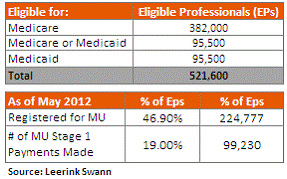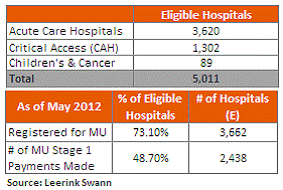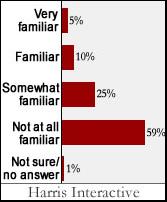
|
Cavanaugh Consulting Group® |
|
An Introduction to CCG |
|
Our Background |
|
What We Do |
|
Our Professional Staff |
|
Our Clients |
|
Industry Links |
|
Brochures |
|
Email Us |
|
Experienced and Knowledgeable Navigators |
|
· Meaningful Use Attestation Update On June 19th, CMS announced that over 100,000 healthcare providers had received incentive money for using electronic health records (EHRs). While we expect the number of attestations to continue climbing, we anticipate a slowdown in the number of providers that receive payments in the coming months following a rush to meet the 2011 attestation deadlines. Hyperlink
· How Familiar Are Insured U.S. Adults With the Concept of Medical Identity Theft? Hyperlink
· Consumers Are Ready to Adopt Mobile Health Faster than the Health Industry is Prepared to Adapt, Finds PwC Study on Global mHealth Adoption. Hyperlink · Roughly one-half of consumers predict that within the next three years, mHealth will improve the convenience (46 percent), cost (52 percent) and quality (48 percent) of their healthcare. · Fifty-nine percent of emerging market patients use at least one mHealth application or service, compared with 35 percent in the developed world. Nearly half of consumers said they expect mHealth will change the way they manage chronic conditions (48 percent), their medication (48 percent) and their overall health (49 percent). Six in ten consumers (59 percent) expect mHealth to change the way they seek information on health issues and 48 percent expect it to change the way they communicate with physicians. · Among consumers who already are using mHealth services, 59 percent said they have replaced some visits to doctors or nurses. · The top three reasons consumers want to use mHealth is to have more convenient access to their doctor or healthcare provider (46 percent), to reduce out-of-pocket healthcare costs (43 percent) and to take greater control over their health (32 percent). · Sixty percent of consumers said they believe doctors are not as interested in mHealth as patients and technology companies are. The study found that physicians and payers are more cautious than consumers in their outlook for mHealth. Specifically: · Nearly two-thirds (64 percent) of doctors and payers said that mHealth offers exciting possibilities but there are too few proven business models. In addition, the effectiveness of mHealth changing patient behaviour is evolving. For example, more than two-thirds of consumer respondents who have used mHealth wellness or fitness applications with manual data entry discontinued it after the first six months. · Only 27 percent of physicians encourage patients to use mHealth applications to become more active in managing their health, and 13 percent of physicians actually discourage it. · Forty-two percent of doctors surveyed worry that mHealth will make patients too independent. · Payers appear to be far more supportive of mHealth than physicians. Forty percent of payers compared to 25 percent of physicians encourage patients to let doctors monitor their health and activities using mHealth services and devices. · Payers and providers both cited multiple barriers to the adoption of mHealth, notably the complexity and scope of change associated with mHealth. Public sector doctors and payers cited lack of existing technology as the biggest barrier to greater use of mHealth adoption. Sixty-three percent of physicians in the private sector versus only 40 percent in the public sector have access to wireless connectivity at work. · Forty-five percent of doctors and payers said that the application of inappropriate regulations originally developed for earlier technologies is slowing the adoption of mHealth. · More than one quarter – 27 percent of doctors and 26 percent of payers – cite an inherently conservative culture as a leading barrier to the adoption of mHealth. · Electronic medical records outperform paper in primary care “Practice Challenge” Hyperlink · Practices using EMRs reviewed the records of all their active patients in an average of 1.4 hours. Paper-based practices of approximately the same size reviewed 10 per cent of all active charts in 3.9 hours, which means that they would have needed an estimated 40 hours to conduct a full practice review. · Practices with EMRs were also more confident in their ability to contact all the right patients to receive the appropriate treatment or intervention in a timely manner. On a scale of one to five, where 5 is very confident and 1 is not confident, EMR-based practices were more confident in their reviews than paper-based practices (average score of 3.8 vs. 1.9). · Healthcare IT spending to grow by triple digits: Black Book HIE survey The crucial role of HIEs to accomplish a health care organization’s move to patient-centric accountable care is undeniable, however, 97% of US physicians and 80% of hospitals are meaningfully unconnected. A small group of HIE vendors rise to the top of a sweeping early adopter satisfaction survey. 87% of prospective HIE purchasing decision makers indicated an intention to only consider a top tier vendor driving potentially multimillion dollar revenue surges for these firms. The top ranked HIE vendors based on client experience for 2012 are: Hyperlink · Optum: Top Payer/Insurer–based HIE vendor · Lawson, an Infor Company: Top Complex Data & IT Integrator HIE vendor · NextGen: Top Ambulatory EHR EMR-based HIE vendor · Harris Healthcare: Top Core HIE System vendor · Cerner: Top Hospital Information Systems-based HIE vendor The report notes other key findings in the 2012 Black Book State of the Enterprise HIE Industry report include: · 28% of respondents are cautiously increasing HIE spends before the end of 2012, but eight of ten providers expect organizational HIE budgets to significantly increase by 2014. · 85% of hospital executives assert that their expedited HIE adoption implementations are mainly inspired by pressures to prepare for ACOs and changing reimbursement models. · 83% of hospitals and 17% of all providers either already have or plan to participate in an HIE solution currently. 95% of all providers expect to be included in at least one HIE interface by July 2013. · 98% of those providers with HIE strategies in place will focus entirely on community or regional exchanges for the foreseeable future, rather than national health record exchange initiatives. · 41% of healthcare technology executives say interoperability is one of their top three priorities for 2012. 92% of CIOs expect it will be a top three 2013-2014 focus area for their organizations. · Health Information Technology in the United States Driving Toward Delivery System Change 2012; a report published by Robert Wood Johnson Foundation, Harvard School of Public Health and Mathematica Policy Research, April 2012. Since the inaugural report of Health Information Technology in the United States, released in 2006, the authors have found slow, steady increases in the level of adoption for physicians and hospitals throughout the United States. Now, as these incentive programs and other reform initiatives begin implementation, they continue to track the progress of the nation’s health care system toward universal adoption of electronic health records (EHRs). Executive Summary Link Full report Link · Allscripts Announces Board and Management Changes, Stock Tumbles (CCG Editorial Remarks) · Allscripts Healthcare Solutions Inc's shares plunged 42 percent in premarket trade on Friday, after the company forecast weak full-year earnings, hurt by software development costs and weaker bookings. For the quarter ended March 31, the healthcare information technology provider's bookings slipped 8 percent to $194.6 million from a year earlier. The company's research and development costs increased 64 percent to $36.1 million. Allscripts shares were trading at $9.27 in premarket trade. They had closed at $16.02 Thursday on the Nasdaq. · Chief Financial Officer Bill Davis, resigned and is leaving May 18 to pursue an opportunity with a private company outside the health-care industry. · Chairman Philip Pead was terminated following "extensive deliberations" by the company's board "regarding the leadership of the company." After those talks, directors Catherine M. Burzik, Eugene V. Fife and Edward A. Kangas chose to leave the board because they disagreed with the majority's decision. · Voting seems to have been along legacy company lines with the legacy Eclipsys Board members outvoted. Allscripts had a nine member board: · Remaining: Dennis Chookaszian, Marcel Gamache, Philip Green, Michael Kluger, Glen Tullman. · Departing: The chairman, Phil Pead, past Eclipsys Corp CEO, Catherine M. Burzik, Eugene V. Fife, a former Eclipsys board chairman, and Edward A. Kangas, board chairman of Tenet Healthcare Corp. and a former Eclipsys board member. · What does it mean? Well my take is that the company and product integration has not progressed as hoped and clients are not committing at the pace anticipated. Solving that problem was probably at the root of the disagreement. Legacy Allscripts leadership is now fully in charge of the companies direction. This is not necessarily bad, future success still depends on how long it takes and to what extent the two products and organizations are integrated. My experience with mergers tells me that to some extent this always happens, just not this public. Speed and integration are both critical as hospitals finalize plans on a timetable dictated by HITECH “Meaningful Use” and recognizing that while both products were well regarded, neither legacy vendor dominated their market segment. To truly compete with Epic and Cerner, maybe they need a czar not a committee. · Consumer Activity on Social Media Sites Dwarfs that of Healthcare Companies, Finds New PwC Study on Social Media in Healthcare Hyperlink The consumer survey found: · One-third of consumers now use social media sites such as Facebook, Twitter, YouTube and online forums for health-related matters, including seeking medical information, tracking and sharing symptoms, and broadcasting how they feel about doctors, drugs, treatments, medical devices and health plans. · Four in 10 consumers say they have used social media to find health-related consumer reviews (e.g. of treatments or physicians); one in three have sought information related to other patients’ experiences with their disease; one in four have "posted" about their health experience; and one in five have joined a health forum or community. · When asked how information found through social media would affect their health decisions, 45 percent of consumers said it would affect their decision to get a second opinion; 41 percent said it would affect their choice of a specific doctor, hospital or medical facility; 34 percent said it would affect their decision about taking a certain medication; and 32 percent said it would affect their choice of a health insurance plan. · While 72 percent of consumers said they would appreciate assistance in scheduling doctor appointments through social media channels, nearly half said they would expect a response within a few hours. · As is the case more broadly, young adults are leading the social media healthcare charge. More than 80 percent of individuals between the ages of 18 and 24 said they were likely to share health information through social media channels and nearly 90 percent said they would trust information they found there. By comparison, less than half (45 percent) of individuals between the ages of 45 and 64 said they were likely to share health information via social media. Hyperlink to Past Article Summaries
|
|
Healthcare IT News |
|
Cavanaugh Consulting Group CavanaughConsulting.org |


|
Quotes
“Confidence is what you have before you understand the problem” Woody Allen, quoted in the Monterey County, California, Herald
‘Many of life's failures are men who did not realize how close they were to success when they gave up” Thomas Edison, quoted in the Los Angles Times
“Coming together is a beginning. Keeping together is progress. Working together is success.” Henry Ford, quoted in the Modesto, California, Bee
‘Every wrong attempt discarded is a step forward.” Thomas Edison, quoted in ScienceDaily.com
“That men do not learn very much from the lessons of history is the most important of all the lessons that history can teach.” Aldous Huxley, quoted in The Wall Street Journal |






